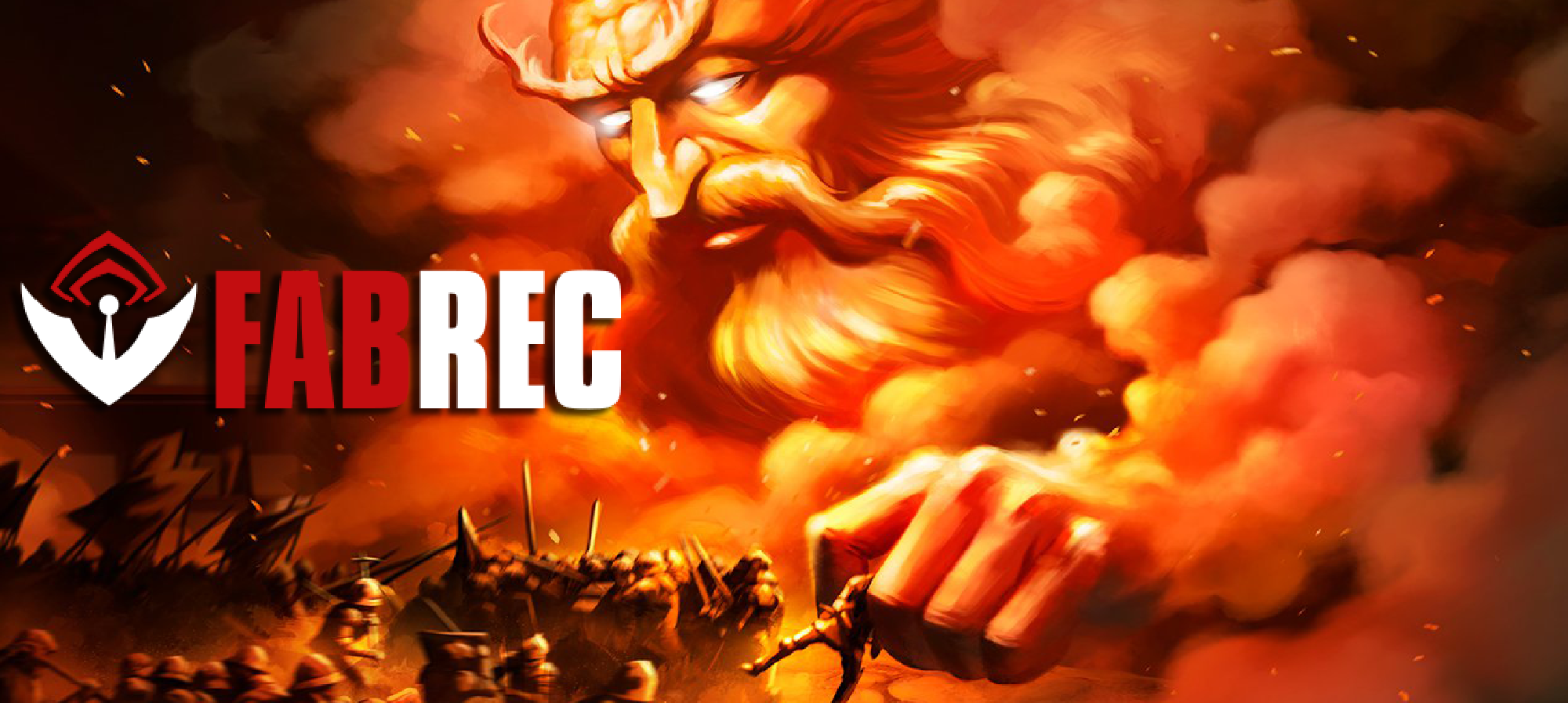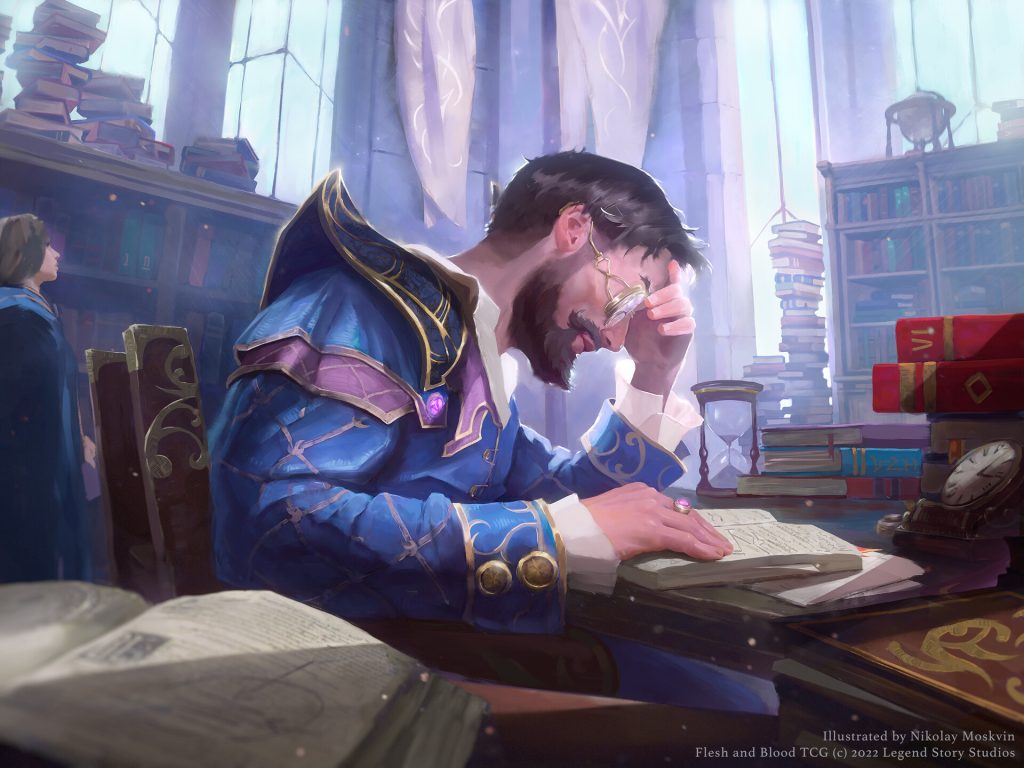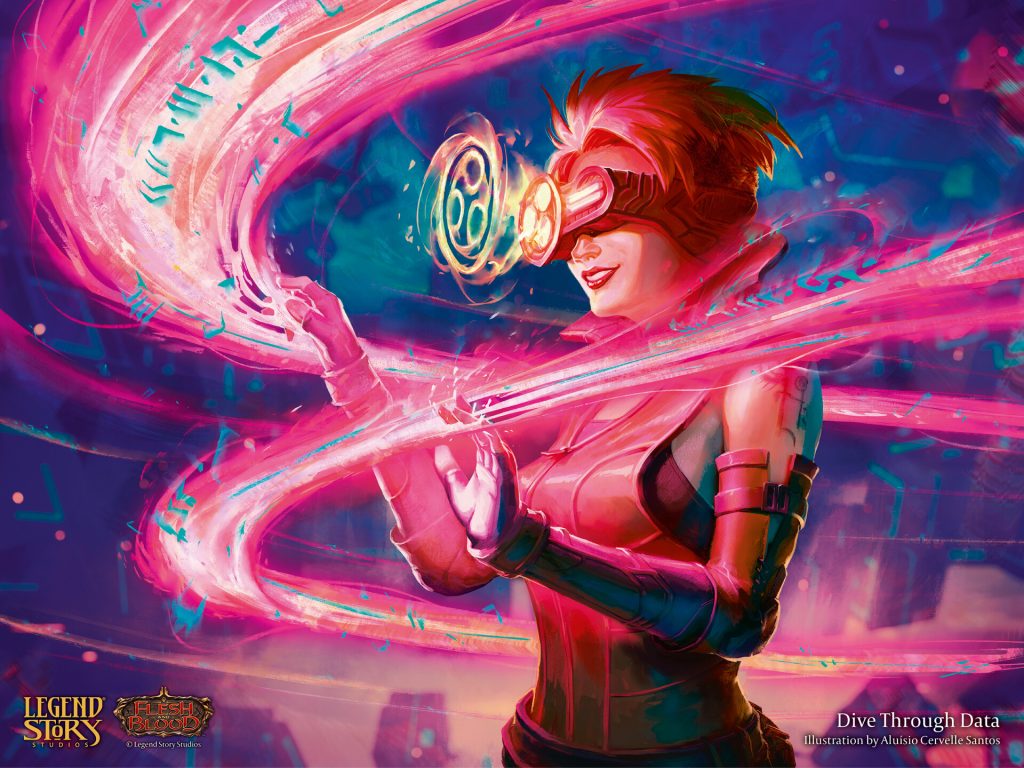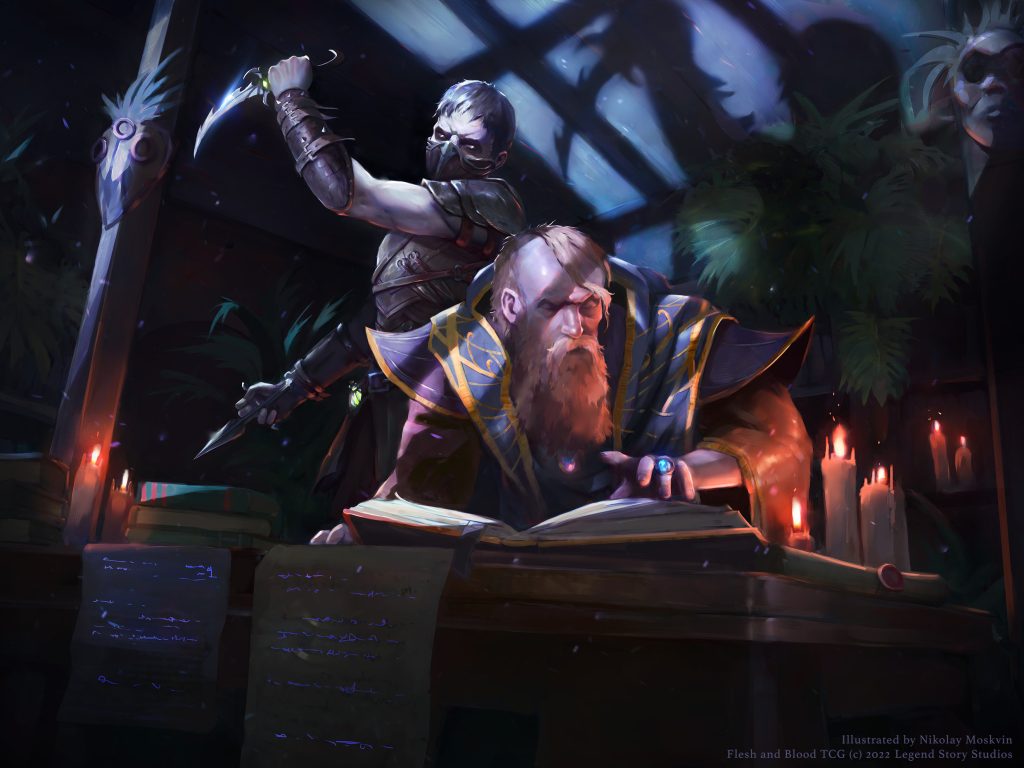Is Flesh and Blood Worth Playing at a Casual Level?

(Art of War | Art by Igor Heras)
Flesh and Blood is the greatest card game in the market today for competitive players. But what if you don’t have the time or money to be a true competitor in your region, or the world?
This one is personal for me. I’ve enjoyed playing competitive trading card games for most of my life, but as an adult, husband, and father, competitive play is not always in the cards.
I knew I would love Flesh and Blood from the very first Team Covenant stream of the game. Simply put, it’s the game I would create if I had the ability, resources, and vision to do so. I was even working on a prototype card game with similar elements and themes, but as soon as I saw the gameplay from Zach and Steven, I knew someone else had already done a far better job than I would have.
So, how do you stay invested in a competitive TCG when you have very little time to attend weekly Armories, play regularly with friends, or travel to industry-leading competitive events? I’m still figuring it out. Maybe you have some suggestions for me, too.

(Sift | Art by Nikolay Moskvin)
Why Not Embrace Casual Play?
I’ve asked myself a version of this question every time I’ve come home from going .500 at another competitive event. To me, playing casually also involves playing regularly with others, which is the root of my issue.
Unlike others in the community, I’m lucky to have several stores supporting the game around me. I have plenty of Armories firing weekly within a 15-40-minute drive, but I’ve rarely made it out.
In a lot of ways, I am a casual player. I’ve never had a spike mentality. I don’t play the best deck. I have few accolades.
So why not embrace casual play? Because I want to win.
 (Celestial Cataclysm | Art by Alexander Mokhov)
(Celestial Cataclysm | Art by Alexander Mokhov)
On Playstyles
In my history of TCGs, I’ve always been an innovator – or more accurately, an aspiring innovator. I enjoy nothing more than brewing decks that can beat the top decks.
I’ve documented my journey with dark horse decks before:
- On Riding a Dark Horse to a Big Tournament
- On Failing Miserably with a Dark Horse Deck at a Large Tournament
Trying to play the surprise in rock, paper, scissors metas sometimes leaves you as a candle flame – your wick snipped by scissors, snuffed out by a papery pinch, and smashed to wax by rock.
Innovation leads to more questions. Do I need the element of surprise to win? Am I worried that I’d prove my ineptitude at competitive FAB even if I played the best deck?
My latest attempt to surprise the meta was at Battle Hardened: St. Louis. Lexi was still the talk of the town, and there was sure to be plenty of Dromais. I thought I’d catch the crowd by surprise with my take on Iris of Reality Prism.
Why might that have worked? Well, St. Louis has a lot of pro-level players and a lot of Guardian fans. I imagined I’d catch a host of Bravos by surprise with the OG Illusionist, but I was wrong. My 2-0 start was utterly squashed by one of the region’s most decorated players, Lucas Oswald on Lexi. I accidentally passed my window to reply on instant speed on his turn zero. Then, frustrated by that mistake, I missed my first Tunic trigger.
Mistakes happen, but pro players will capitalize on any misstep in an already tough match-up.

(Dive Through Data | Art by Aluisio Cervelle Santos)
Online Testing
Is it disingenuous to play a game designed for in-person play online so much? Maybe, but I’ll leave that ethical debate for another day.
In previous games, I had similar time constraints, but I got a lot of genuine testing out of playing two-handed against myself. IRL or with tabletop clients like TTS or OCTGN, I would open two windows and work through the best possible lines from each side of the table.
Admittedly, this is a bit more challenging in Flesh and Blood. The game usually has more decision points and long-term implications through the pitch system.
I regularly play on Felttable to test new ideas and tweak deck slots, but once you’re seasoned with a particular deck, it’s hard to improve your game against the AI. Talishar has been a surprising addition for Flesh and Blood players, but it’s hard to get in the kind of practice pro teams go through.
Pro teams and less formal play groups clash their decks against each other repeatedly to find optimal play-lines and fine-tune their matchup tactics. Through collaboration and repetition, they aim to find every possible advantage. Without a team, I’m considering joining the Runaways Discord to access a more intentional online testing space.

(Slay the Scholars | Art by Nikolay Moskvin)
To Be or Not to Be a FAB Player
So, should players like me just quit? I play in person every few months. I don’t own every card or staple. I lose as much or more often than I win.
Honestly, quitting is tempting. Recouping some of my financial investment in the game wouldn’t be the worst idea. Plus, the time spent brewing, watching, and engaging. (Flesh and Blood can be an all-encompassing hobby, even a lifestyle for some.)
But, no, I’m not done with this game. I’m confident I’ll find a hero in Heavy Hitters to champion for the foreseeable future, and I’m choosing to commit rather than quit this game. Will I switch to a best-deck player? If I have fun playing it, then, yeah, maybe I will.
Where are you in the spectrum of pro or casual player? Let me know in this poll.
Further reading:
#FABDad – When Life Gives You Lemons, Play FAB Anyway!